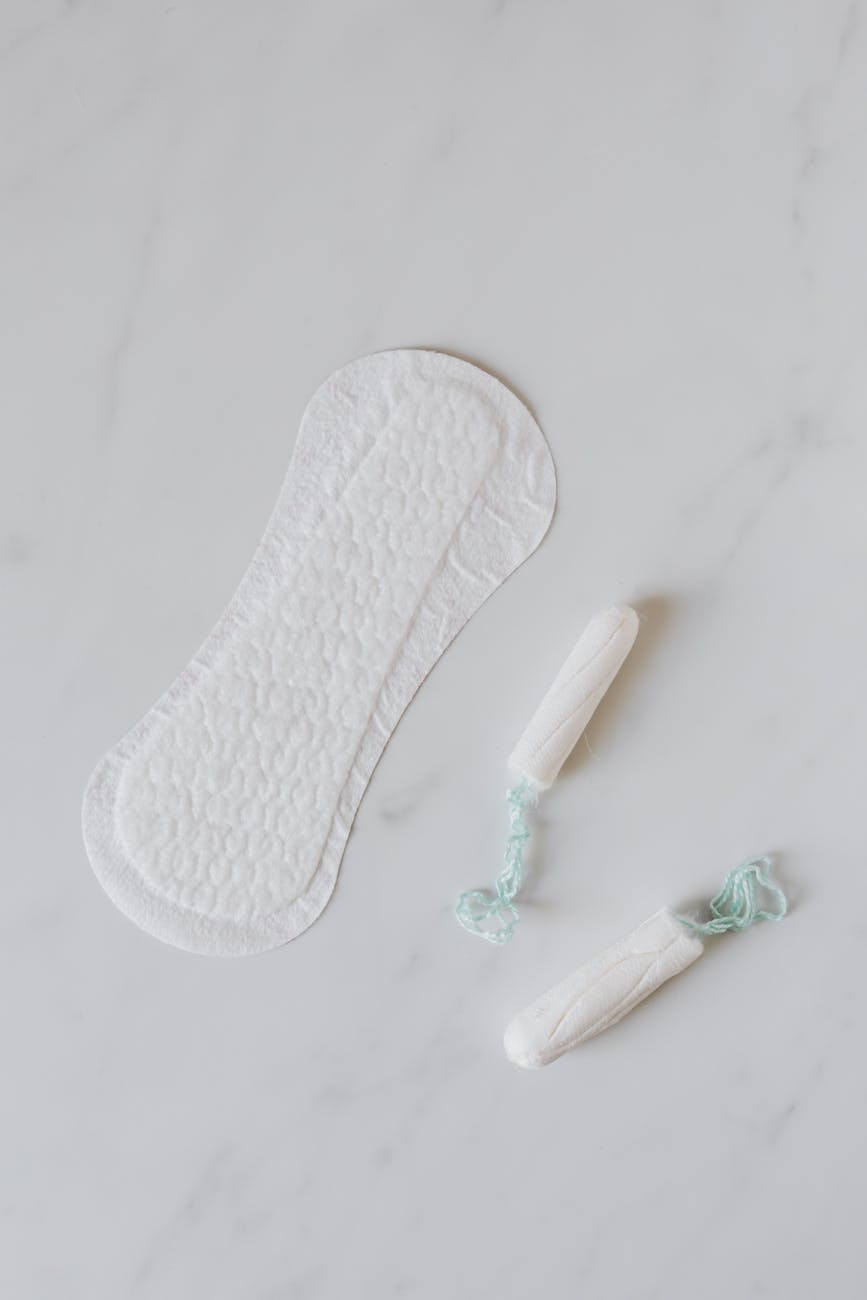
![]() Ginika Oluchi okekehealthcareJanuary 30, 2021
Ginika Oluchi okekehealthcareJanuary 30, 2021
For most females of childbearing age, a common source of worry is irregular periods (menstruation). The fact that only 15% of women have a normal 28-day menstrual cycle gives credence to the claim that for most women, the menstrual cycle does not follow a predictable pattern.
An irregular period is a vital sign of anovulation, a hormonal problem that is associated with decreased ovarian steroid secretion and production.
A study done in 2018 revealed that the concomitant hormonal problems may commence the development of different chronic diseases, such as type 2 diabetes, infertility, and heart disease. Also, the prolongation of irregular periods can lead to the early onset of menopause.
Hence, it is okay to be worried when one experiences irregular periods because they are tell-tale signs that all is not perfectly well in the body system. The good news, however, is that you are not alone, and solutions for irregular periods now abound at your fingertips.
This is another reason one should not ignore the signs, because the earlier one begins to tackle the root cause of an irregular period, the higher the chances that it will be treated effectively. This article discusses etiology of irregular periods (menstruation) in women and ways in which you can regulate your cycle using home remedies.

A regular menstrual cycle is an indicator of a healthy reproductive system in women, and it is the physiological cyclical process of discharging blood and endometrial tissue from the uterus between puberty and menopause in women who are not pregnant. It entails the shedding of superficial layers of the endometrium with subsequent repair in preparation for re-growth from the basalis layer.
In women, menstruation is regulated by the cyclical fluctuation of the female hormones oestrogen and progesterone, and this happens continually during a cycle of approximately one month. The body of a woman undergo several changes during the menstrual cycle, from the first day of menstruation to the day before the next menstrual flow; this is due to the hormonal fluctuations.
Women usually experience about 400 menstruations between the start of menstruation (menarche) and the end of menstruation (menopause).
This could last for 3-7 days. Even though the seemingly perfect menstrual cycle is believed to be 28 days, as earlier stated, only 15% of women have that. The menstrual cycle of most healthy females ranges between 21 and 35 days. The normal menses can be summarized as a ‘breakdown, remodeling and repair’ process.
However, the actual events that lead to breakdown are predominantly local events that are precipitated by a fall in steroid hormones at the end of the cycle. Local factors involved are lysosomes, metalloproteinases, and endothelin (vasoconstrictive agents).
In simple terms, an irregular period (menstrual cycle) is when one’s menstrual cycle is longer than 35 days or becomes very inconsistent. This is also known as Abnormal Uterine Bleeding (AUB) or Oligomenorrhea. It has been shown that the changes in female hormone levels that, in turn, cause irregular periods are linked with stress, obesity, and health behaviours.
Medically speaking, irregular periods encompass any alteration in the normal menstrual flow pattern. The alteration may take the form of the following:
Whichever is the case, it is pertinent not to ignore the signs and symptoms of these anomalies. Although it is important to note that if these symptoms occur at the start of puberty or towards the beginning of menopause, seeking treatment may not be very necessary.
There are a plethora of reasons women experience irregular periods, ranging from weight to lifestyle. However, a study indicated that one of the main causes of irregular menstruation in women is functional hypothalamic amenorrhea accompanied by reduced gonadotropin-releasing hormone secretion and hypothalamic-pituitary-adrenal (HPA) axis dysregulation. In a more comprehensive sense, the leading cause of irregular periods in women is hormonal imbalance, especially an imbalance in estrogen and progesterone production.
In terms of connecting the causes of irregular periods to the health behaviour or lifestyle of one, it has been scientifically proven that smoking is one of the causative agents of hypoestrogenism. More so, hypothalamic-pituitary-adrenal (HPA) axis function can be disrupted in women who experience unhealthy, higher stress levels. Furthermore, women with high body mass index (BMI) have impaired activity in their sex hormone-binding globulin (SHBG), insulin, and testosterone.
However, it does not end there. As a matter of fact, a lot more factors contribute to the chances of having irregular periods, like physical and emotional stress or significant weight loss.
Medically, the causes of irregular periods can be grouped into two categories:
Organic causes, which have identifiable roots, and non-organic causes, which have no identifiable reason.
For organic causes, root reasons for the irregular period may include local disorders like:
It could also be from systemic disorders such as:
Some pregnancy conditions can also lead to irregular periods as a result of:
Miscarriage, an ectopic pregnancy (the fertilized egg implants outside the uterus), gestational trophoblastic disease (GTD), postpartum haemorrhage (PPH).
Irregularities in your period are fairly common among women. Just know that it is normal to have changes in your cycle length or have a period flow that appears to be heavier or slightly lighter different than your former period. Let’s assess the reasons females experience irregular periods, and some of these symptoms are listed below:

Not all irregular periods are caused by hormonal imbalance. Sometimes, inculcating some lifestyle changes can bring a lasting solution to a menstrual problem. These science-backed remedies have proven to help many women get their cycles back on track.
In case you are having irregular periods, try out the tried and tested home remedies listed below:
Some irregularities in menstruation are caused by rapid weight gain. Ovulation is very important in menstruation, and it can be affected by weight gain. Therefore, if you are overweight, one smart way to regulate your period is by losing some weight.
You can learn more from our article on Smoothies for Weight Loss for easy and sweeter ways of losing one’s weight.
Also note that losing a lot of weight can result in irregular periods. So, depending on where you fall in – either underweight or overweight, – endeavour to maintain a healthy weight.
If you suspect that the irregularity in your period may be caused by your weight, Consult a Doctor on KompleteCare to get advice on the ideal weight that you need as well as the best way to achieve that weight.
Eating healthy foods helps your body organs and hormones function effectively, while indulging in an unhealthy diet like processed food, smoking, alcohol, and fast foods can cause a hormonal imbalance in your food, which leads to irregular periods. Make it a habit to consume nutrient-dense foods. This includes cruciferous vegetables (cabbage, radish, cauliflower, broccoli, and lettuce), fruits (blueberries, grapes, pomegranates, and strawberries), dry fruits, grass-fed red meat, fish, and some healthy spices.
Turmeric is one of the spices we have in our kitchens. Turmeric is sometimes light or dark yellow in colour and it has anti-inflammatory and anti-spasmodic elements. Turmeric may help with regulating irregular periods though daily consumption. You can add turmeric to most dishes, or better yet you can add it to warm milk and honey and drink it daily.
Among the many benefits of ginger is its ability to help minimize the quantity of blood lost during menstruation. Ginger contains health-beneficial compounds such as shogaols, gingerols, paradols, and zingiberene that give it anti-oxidants, anti-inflammatory, anti-microbial, and anti-fungi properties. From time immemorial, women have added ginger to their tea or foods to help treat prolonged and painful periods. This wonder spice contributes to alleviating other related symptoms of menstruation, such as anxiety and mood swings.
Read more Health Benefits of Ginger here.
Cinnamon is a great spice that can also help balance feminine hormones. Cinnamon is used to reduce menstrual pain, nausea, and vomiting during menstrual periods. This magnificent spice may help to regulate irregular periods, as it is known to regulate the flow of blood to the uterus.
Grapefruits contain a lot of healthy vitamins, such as vitamin C, beta-carotene, quercetin, lutein, lycopene, and ellagic acid, which combine to help correct irregular periods. All you have to do is take a glass of grape juice every morning and watch the irregular period come back on track.
7. Jaggery:
Jaggery, also known as panela or gur, is a natural, unrefined sweetener made from cane sugar and naturally packed with proteins, vitamins, and minerals that your body needs. Jaggery helps in subsiding uterine cramps and regulating irregular periods because it is enriched with essential healthy nutrients.
8. Apple cider vinegar
Apple cider vinegar (ACV) is a product of fermented apples, and consuming it can help you with irregular periods. ACV may help with the lowering of blood sugar, weight loss, and hormone regulation in women.
ACV is very strong and can damage the enamel of your teeth; ensure you dilute a teaspoon in a glass of water before you drink it.
9. Vitamin D
You can get your vitamin D from the early morning sun. Vitamin D is crucial for many bodily functions, and a study showed that a large percentage of people are vitamin D deficient. Irregular periods have been linked to vitamin D deficiency in some women. The best way to get enough vitamin D to help regulate irregular periods will be through exposure to the sun or supplements.
Remember to Consult a Doctor on KompleteCare before you include any supplements into your diet.

Acute haemorrhage
Irregular uterine bleeding unrelated to structural abnormalities of the uterus or the endometrial lining is a diagnosis of exclusion made after structural causes of bleeding and chronic medical diseases have been ruled out.
It occurs more commonly in the first 5 years after menarche and in the perimenopausal period.
About 50% of menorrhagia is attributed to DUB.
20% are adolescents, and 50% aged 40-50 years.
Most cases of DUB (85%) are due to failure of ovulation caused by an alteration in the neuro-endocrinological function.
The treatment depends on the age of the patient:
Reassure
Estrogens
Oral contraceptive pills
MDPA
Proper evaluation: hysteroscopy, endometrial biopsy.
Hormonal therapy
D&C
LR-IUD
Endometrial ablation
Hysterectomy (coexisting endometriosis, myoma, prolapse)

In this technological age, telemedicine has evolved in such a way that medical consultations can be done virtually. In the case of irregular periods, which have been mentioned above as one of the reasons women consult gynaecologists. Telemedicine is a good choice for any woman with irregular periods, as the assessment and management can be done virtually.
On your first consultation on irregular periods, a virtual or video call is welcomed because it is a stage of communicating your medical history, followed by the prescription of medications as a hormonal trial management. These can be done via video call as a pelvic examination is not needed at the first consultation. Telemedicine enables electronic and virtual prescription of birth control pills that can help with irregular periods.
Furthermore, your follow-up visit can also be done virtually, and this time, if a pelvic test is needed, that too can be ordered electronically. You will need to go for a pelvic ultrasound at the radiology department, and the results will be faxed to the gynaecologist. This may include the imaging report. The report will confirm the next approach to sorting out the causes of irregular periods.
In the case of a premenopausal consultation, the ultrasound imaging results will show the lining of the uterus. And the thickness of your uterus lining will determine if there is a need for you to visit the doctor’s office for further examination, and in some cases, a biopsy will be required.
The lining of the uterus that is more than five millimetres thick shows that there is a possibility of having endometrial or uterine cancer and will require you to visit the gynaecologist’s office in person for an examination, and a procedure such as a biopsy may be recommended. However, the lining of the uterus that is less than five millimetres will not require any personal visits to the gynaecologist’s office.

Period irregular periods (menstruation) are more likely to occur during the early stages of menopause or when a young lady experiences the first start of menstruation called menarche, which is around the ages 9 to 14.
2. If I have irregular periods, should I be concerned?
There may be no need to worry about irregular periods, as some fluctuation in menstruation is common. Just know that the general explanation of what a normal period is may differ from your own. But do not overlook certain symptoms, for they can be indications of a more serious issue.
If you experience irregular periods while trying to conceive or if you are worried about your irregular menstrual cycle, consult with your gynaecologist. A gynaecologist can advise you on what is normal and whether you require medical attention.
3. Is missing your period for two months normal?
Missing your period once or twice is not ideal, but you should not be too worried. Just think about or record any recent changes that have occurred in your life. It could be that your irregular period was as a result of things like stress, a new exercise regimen, weight gain or loss, or switching birth control pills. If you miss your menstrual period for three consecutive months or longer, or if you have any other strange symptoms when you get your period, make an appointment with your doctor.
4. What is the normal period?
A little delay in your Period is sometimes okay, the reason being that while some women can calculate and tell their menstrual cycle accurately, others cannot accurately anticipate their menstruation. However, if there is a noticeable shift in the number of days in a cycle or the interval between cycles, speak with your doctor. Even though it is a good idea to speak with your doctor, it does not always mean there is an issue.
5. How can irregular periods be diagnosed?
Once you notice any changes in your menstrual cycle, you really need to start recording the dates your period starts and ends. Also, keep a record of your symptoms, the quantity of flow, and whether you have cramps, bleeding between periods, or dropping big clots during the periods. Then, when you consult your doctor, you will need to talk about all those signs you have noticed. Your doctor will further inquire about your medical history and menstrual cycle in order to diagnose irregular periods.
There will be a pelvic examination as part of the physical assessment. Additionally, some specific tests might be requested by your doctor, such as:
• Pelvic ultrasonography: identifies abnormal bleeding caused by an ovarian cyst, polyps, or uterine fibroids.
• Endometrial biopsy: A sample of tissue from the lining of your uterus is taken out by your doctor and sent to the laboratory for further analysis and results. This test can assist in the diagnosis of precancerous cells, endometriosis, and hormonal abnormalities.
• Hysteroscopy: Hysteroscopy is a technique that lets your doctor examine the inside of your uterus to identify and address certain reasons why you are bleeding abnormally or have irregular periods.
Irregular periods can be treated, but firstly, the underlying cause of your irregular periods will determine how best they can be treated. When it comes to irregular periods, medication is frequently used as a first line of treatment; however, your doctor might suggest surgery if medicine is ineffective.
Hormonal birth control is an option your doctor can prescribe for you to treat irregular or heavy bleeding brought on by PCOS, uterine fibroids, endometriosis, or other illnesses. This is because hormonal birth control aids in controlling and bringing predictability to your cycle. This hormonal birth control can be injectable, tablets, vaginal rings, or intrauterine devices (IUDs). The tablets can be progestin-only or estrogen and progestin combination. To treat irregular periods,
7. How can i reduce my chance of experiencing irregular periods (menstruation)?
You can lower the risk of having irregular periods by practicing good self-care, such as:
8. When should you consult your doctor regarding irregular periods?
You can consult with your gynaecologist if you suspect that you might be pregnant, are experiencing irregular periods, or have any of the following symptoms:
Medically reviewed by Dr. Bolarinwa E.S
REFERENCES
healthcareFebruary 27, 2025
healthcareAugust 20, 2025








